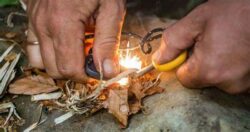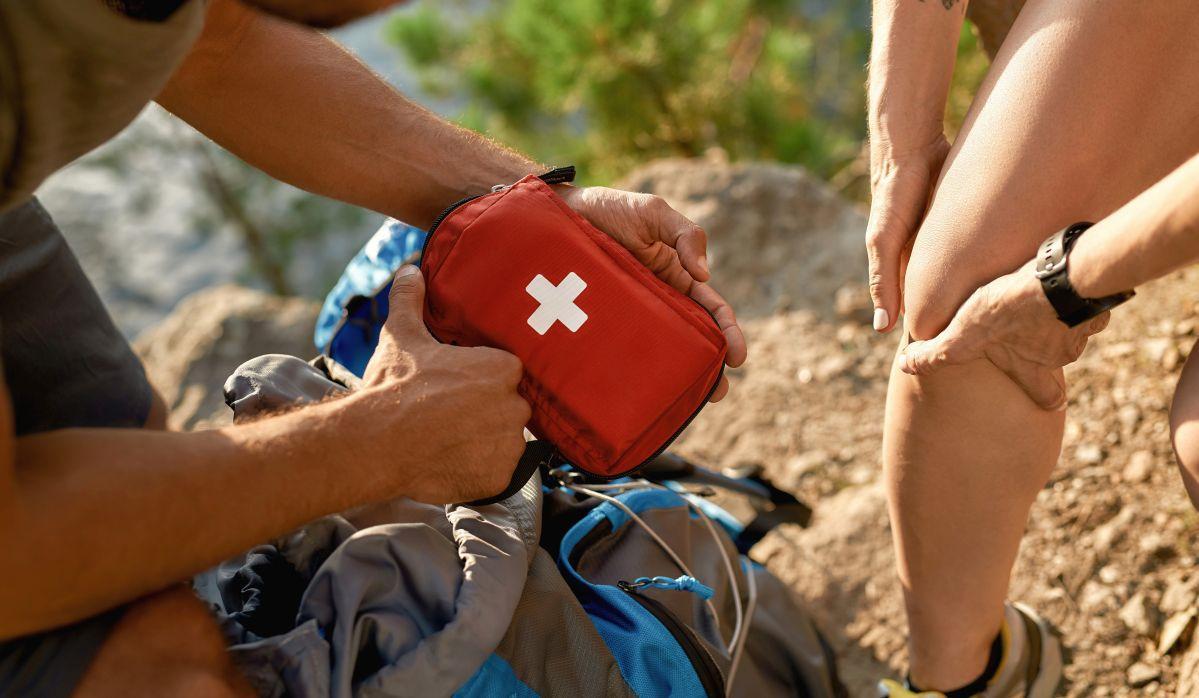Outdoorsmen and women never plan to get injured, hurt, or stranded when enjoying Outdoor Recreation. Accidents happen when we get to comfortable, relaxed, and distracted. Once our guard is down, S@#T happens.
“It will never happen to me!” That’s what we all think until something goes wrong. Accidents come in all sports, places, and places.
BE PREPARED is the Boy Scout, and trained outdoorsman way. There are many ways that injury will impact us. Cell phones do not always have a signal in remote areas. Here are some of the most common accidents that occur outdoors.
CUTS and ABRASIONS Axes, knives, broadheads, and sharp edges cause serious cuts. Be prepared with butterfly bandages, gauze, and antiseptics. Have what you need to clean the wound and stop the bleeding. If the wound is serious, have a tourniquet and a way to contact help. If you need stitches remember that the fishing line will work in a pinch. Use your forceps and a sterilized sewing needle or modified fishhook. Duct tape is a great emergency bandage.
BURNS If fire is involved, someone will get burned. Have Vaseline or burn cream. Anticipate a fire issue and set some rules. Put all fires out completely.
REMOVING A FISHHOOK Fishhooks easily get embedded in people. Learn how to remove them using a cord or forceps. Clean and sterilize.
EYE ISSUES debris can easily get into your eyes. Have a plan to deal with this. Scratches on the eye can be very uncomfortable.
EAR PUNCTURES Sticks have a way of getting into ears and puncturing the eardrum. Know what to do and have a bandage plan ready.
GI CHALLENGES Poor hygiene will lead to diarrhea or upset stomachs. Untreated water can cause Beaver Fever or worse. Maintain a clean camp. Wash often. Sterilize camp dishes, pots, and utensils. Have some meds in case. Campfire charcoal, mixed in a cup of water will help with GI concerns. Have cleaning wipes in the latrine for proper cleaning.
BROKEN BONES Know how to splint and immobilize the bone. Transport the victim carefully. Pain relievers will help. Wading staffs, or improvised crutches, may be needed. A sled or slide can be useful. Be creative. This is when ropes/cord, and tarps come in handy. Duct tape can help immobilize areas fast.
RASHES, ALLERGIES, and INSECT BITES Ticks, mosquitos, bee/ wasp stings, poison ivy, mushrooms, and other allergy concerns exist in the great outdoors. Be prepared for prevention and care of bites or reactions that may occur.
SPRAINS and BRUISES Everyone slips, falls, trips, or twists the wrong way. Know how to support sprained areas with bandages. Ice or cool clothes will help with swelling.
Carry the fixins that you may need in an emergency. Always have a knife/utility Leatherman tool, parachute cord, duct tape, Tylenol, bandages/band aids, water treatment tabs, energy bar, and essentials in case you need to spend the night outdoors. Always be ready to start a fire, purify water, and deal with minor wounds.
Take a First Aid / Emergency training class that is offered in your community. These will be geared for the conditions and environment that you will be exploring. Many off road, boating, hunting, fishing, and outdoor groups offer these wonderful and practical training opportunities.
I swear that when you are prepared, fewer emergencies pop up.
Montana Grant



